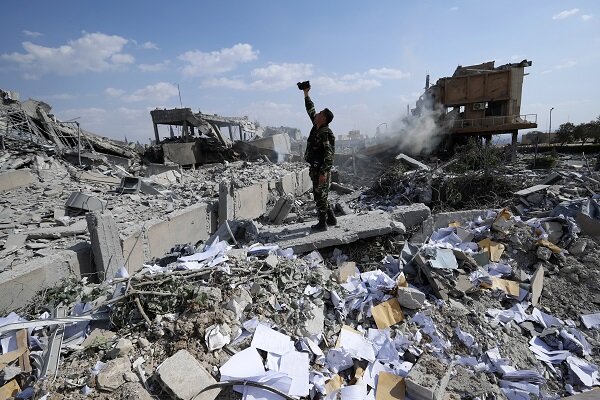The Syria war is coming towards an end
After almost eight years, the war in Syria is apparently approaching the end. There are few, if any, winners, but many losers.
The civil war that broke out in March 2011 has cost at least 368,000 Syrians lives, including 111,000 civilians, nearly 21,000 of them children, the Syrian Observer for Human Rights (SOHR) documented.
SOHR believes the real number is at least 90,000 higher than that and estimated that 88,000 people were also tortured to death in the Assad regime prisons and camps, and 12,000 have suffered the same fate by the ‘rebels’.
Over 11 million Syrians are still displaced, about half of them in Syria. Large parts of the country are bombed to gravel and the wounds are many, deep and too many will also be permanent.
Failure
The UN World Assembly played an early part in the war and never succeeded in luring or forcing a negotiation process.
President Bashar al-Assad claimed from the first moment to be in full right to face the rebellion with military force, and from the very beginning, the rebels were deeply divided on the reasons on which Syria fought.
The United States attempts to build a collective rebel movement proved to be premature, and what was once a popular rebellion against an authoritarian regime was quickly hijacked by other countries in the region either supporting Assad or building up their own rebel groups.
Turning point
When the extreme Islamic group IS took control of large parts of northern Syria and Iraq in 2014, Assad’s forces were heavily pressured. However, this was a turning point in the war.
With the United States in the lead, a number of countries declared war against IS, something Assad tacitly blessed, and when Russia also joined the war against Islamists a few months later, it was difficult to protest.
Since the Cold War, Russia had a large naval base in Syria, who was Moscow’s foremost Allies in the Middle East, and President Vladimir Putin would soon turn out to be Assad’s rescuer.
Shiyan Iran and the Lebanese Hezbollah guerrillas also came to Assad’s rescue, fearing that the Sunni rebels were to hold a grip in Syria. With massive Russian air support, they began the recapture the areas that had fallen.
In line with the advance government forces, Russia negotiated agreements on ceasefires and forced evacuation of rebels and their families, who then went to Idlib Province.
Two thirds
Today, it is estimated that the Assad regime has full control of more than 64% of the country, while the Kurdish rebel alliance, SDF, controls just over 27% in the north, others and, in part, al Qaida-related insurgents have less than 10% and IS may have 0.5%.
This is a division that the West and the neighbouring countries seem to have settled upon, and both the United States and Israel seem to be more concerned with Iran’s influence in Syria than if Assad is sitting as president.
The United States-supported SDF, consisting mainly of the Kurdish YPG militia, has been key in driving IS out of Northern Syria. They currently control about the same areas over which the Kurds had partial autonomy in the past, and most are satisfied. One exception, however, is Turkey.
End-game in Idlib?
President Recep Tayyip Erdogan looks at YPG as the prolonged arm of the Kurdish PKK and has both groups on his terrorist list. He therefore strongly denies that the militia controls the Syrian side of the border and fears that it will feed the dream of a Kurdistan that also includes southeastern Turkey.
Turkey has therefore supported rebels who hold YPG as enemies and have also initiated cooperation with Russia to encircle the rebel-controlled Idlib province. In Idlib, there are now around 3 million people, about half of them internally displaced, and 30,000 of the rebels.
If the rebels are to keep Idlib Province, or if Assad’s forces will break through, is currently unclear. Such events will create even more losers in Syria.
© NTB scanpix / #Norway Today





